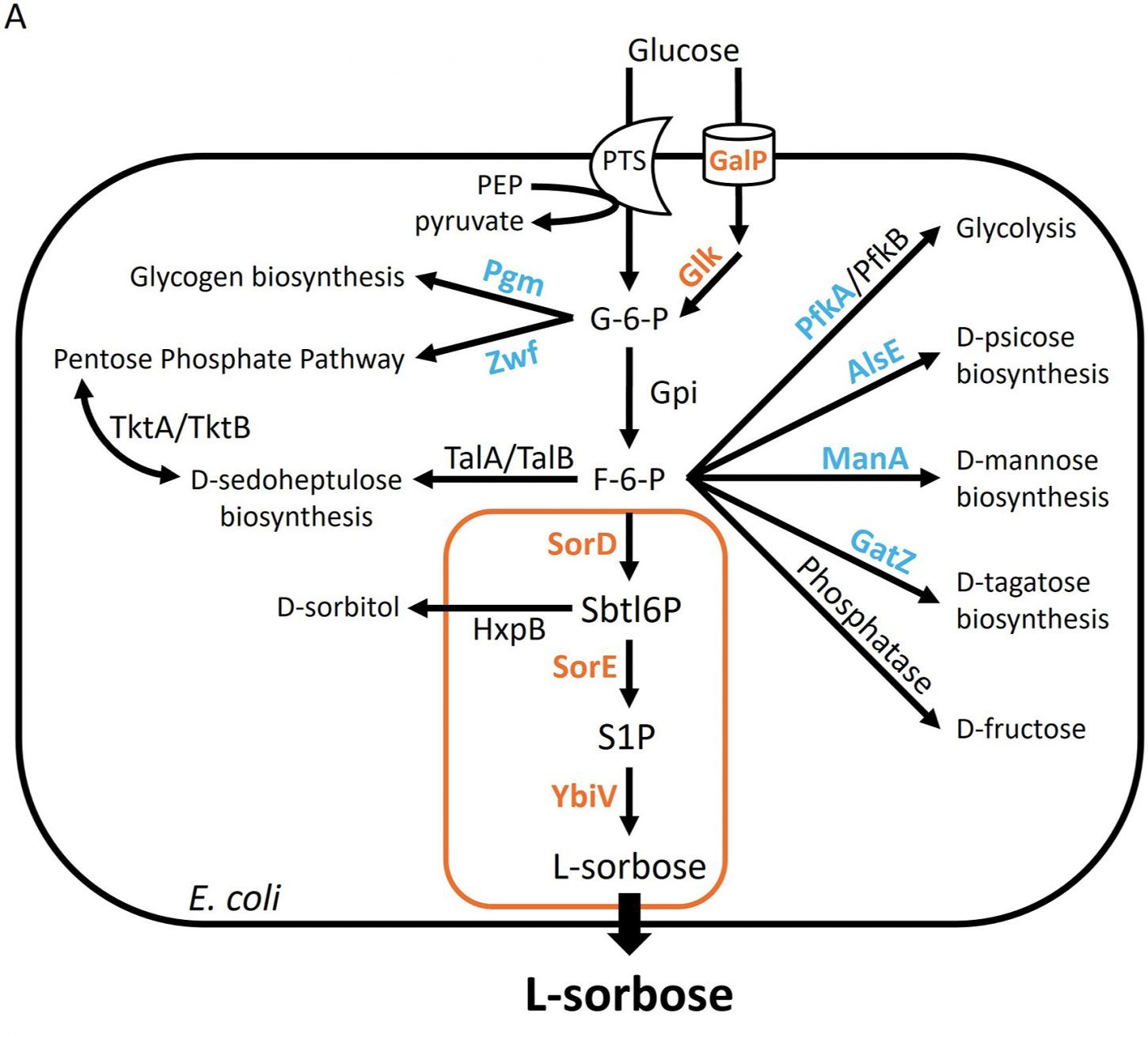Monosaccharides exist in either “D” or “L” conformations, with L-sugars being much less abundant in nature and therefore classified as “rare sugars.” Rare sugars hold significant potential due to their unique interactions with biological systems, offering health, food, and crop benefits. One such sugar, L-sorbose, serves as a critical precursor to Vitamin C and offers a low-calorie, moderately sweet alternative to table sugar, being 60–70 % as sweet but with only 25 % of the caloric value. However, the broader study and application of rare sugars, including L-sorbose, are constrained by their high cost and limited availability. To address this challenge, we developed a biosynthetic strategy to convert the abundant and inexpensive D-sugar D-glucose into the rare L-sugar L-sorbose using microbial production. By utilizing phosphorylation and dephosphorylation steps to thermodynamically drive carbon flux, efficient production of 14.5 g L−1 L-sorbose was achieved under test tube conditions. Additionally, this pathway results in the co-production of D-sedoheptulose, a non-sweet, rare sugar shown to inhibit C6 sugar consumption in humans by modulating energy metabolism. The dual production of L-sorbose and D-sedoheptulose presents unique opportunities for applications in food and health sciences. This study demonstrates microbial production as a promising platform for rare L-sugar biosynthesis and provides a generalizable strategy for converting abundant D-sugars into underexplored L-sugars. Expanding access to L-sugars enables deeper investigations into their biological functions, metabolic pathways, and industrial applications. By advancing both fundamental sugar metabolism research and microbial production strategies, this study broadens the scope of rare sugar utilization.
